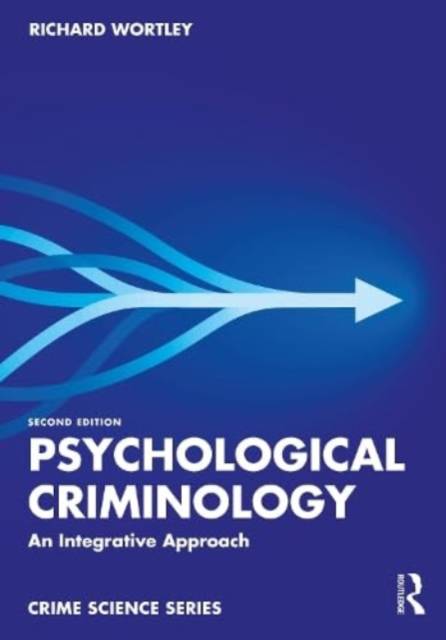
- Retrait gratuit dans votre magasin Club
- 7.000.000 titres dans notre catalogue
- Payer en toute sécurité
- Toujours un magasin près de chez vous
- Retrait gratuit dans votre magasin Club
- 7.000.0000 titres dans notre catalogue
- Payer en toute sécurité
- Toujours un magasin près de chez vous
Description
Psychological Criminology explores what is it about individuals and their experiences that causes them to commit crime and/or to become criminal.
Fully updated to include the latest theories and research, this new edition provides comprehensive coverage of psychological theories of crime and criminality. It arranges theories in temporal sequence, from distal to proximal causes of crime, and is organised under three key headings:
- theories that focus on factors present at birth (human nature, heredity);
- theories that focus on factors that influence the offender over the lifespan (learning and development);
- theories that focus on factors present at the crime scene.
The book emphasises the connections among the different approaches, and demonstrates how, taken together rather than as rival explanations, they provide a more complete picture of crime and criminality.
Psychological Criminology highlights the contributions that psychological theory can make to the broader field of criminology. It is essential reading for students, academics, researchers, and practitioners in both criminology and forensic psychology.
Spécifications
Parties prenantes
- Auteur(s) :
- Editeur:
Contenu
- Nombre de pages :
- 330
- Langue:
- Anglais
- Collection :
Caractéristiques
- EAN:
- 9780367281021
- Date de parution :
- 15-11-23
- Format:
- Livre broché
- Format numérique:
- Trade paperback (VS)
- Dimensions :
- 156 mm x 234 mm
- Poids :
- 480 g

Les avis
Nous publions uniquement les avis qui respectent les conditions requises. Consultez nos conditions pour les avis.






